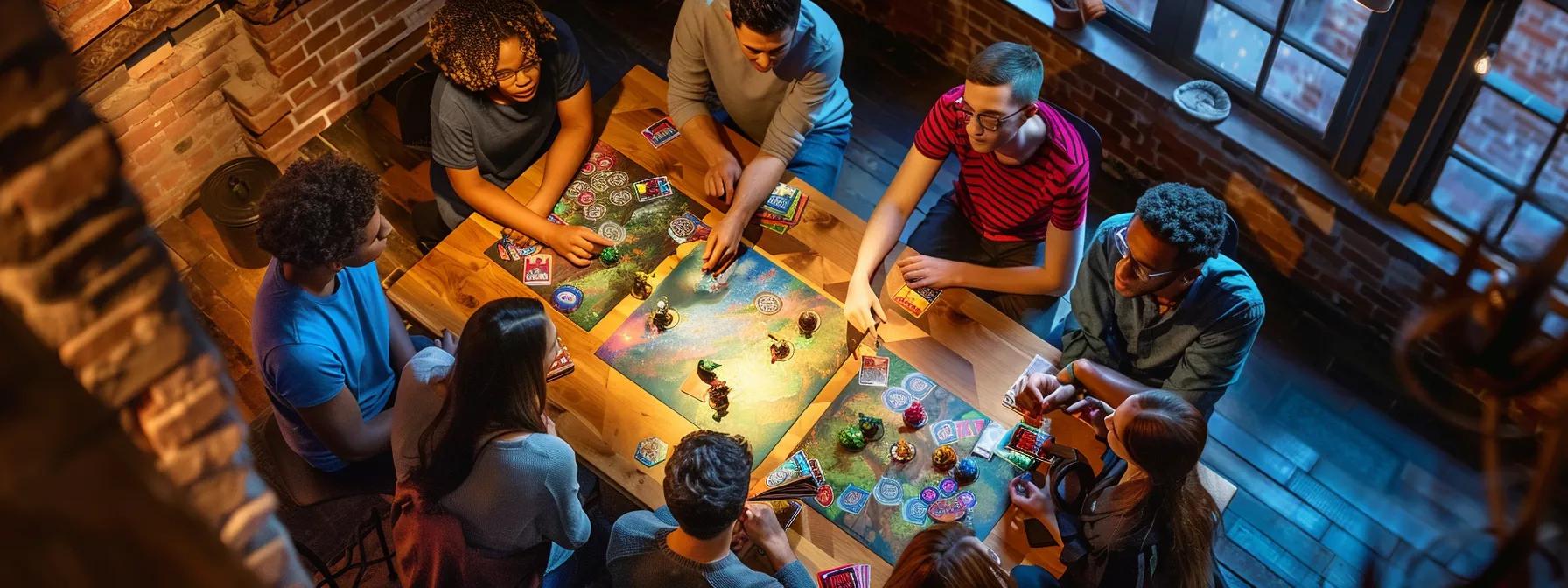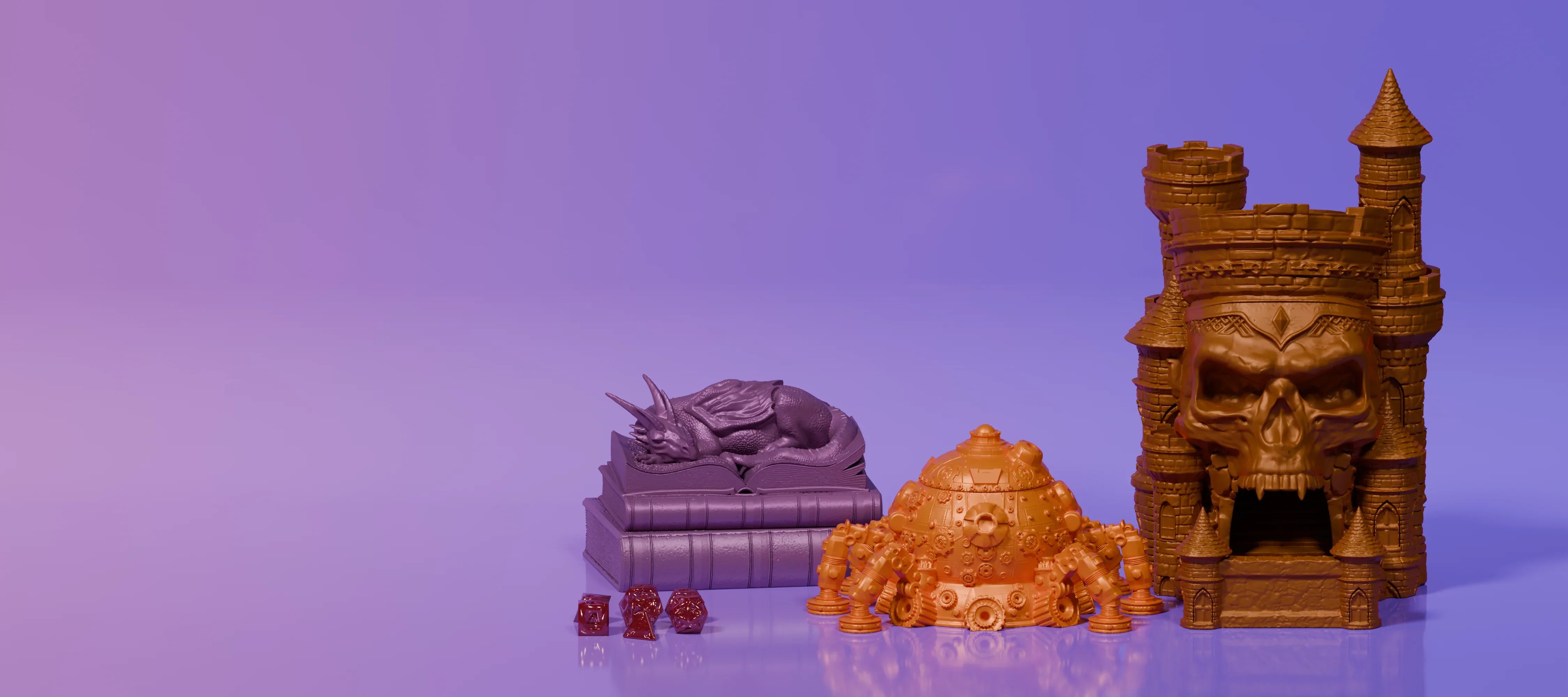
Roll for Insight: How D&D Boosts Your Mental Health
Are you wondering if your favorite tabletop adventures (such as Fabletop) do more than just provide fun distraction? Engaging in Dungeons & Dragons (D&D) can boost mental health by fostering creative expression, community building (social and cultural impact), and strategic problem-solving. Moreover, proper dice storage is essential for keeping your gaming accessories organized and your play experience fluid. In this article, you’ll discover how playing D&D (as highlighted on dndbeyond) supports mental well-being, from enhancing social connection to sharpening cognitive abilities- and promotes personal growth and emotional balance. Let’s roll the dice, embracing the tao of dice, and explore the mental health benefits of D&D.
Key Takeaways
- D&D creates a collaborative environment that reduces loneliness and builds strong communities.
- The game encourages emotional regulation, creative expression, and effective problem-solving.
- Benefits include stress relief, better memory, and improved communication skills.
- D&D acts as a supportive tool that complements professional therapy.
D&D Good for Mental Health Through Social Connection

Playing D&D connects you with a vibrant community, rich in social and cultural impact, where shared adventures on platforms like dndbeyond combat isolation and foster belonging, further reflecting nerd culture's growth as a mainstream social movement grounded in creativity and collaboration. The game naturally forms opportunities for lasting friendships and teamwork, a phenomenon many enthusiasts describe as the tao of dice. With innovative dice storage solutions and even narratives emerging from Fabletop sessions, you build interpersonal skills that extend well beyond the gaming table.
Building Community and Combating Loneliness With DnD for Mental Health
Regular sessions in D&D create a “second home” environment that eases loneliness. By connecting over shared experiences similar to those celebrated on dndbeyond and Fabletop platforms, players experience a tangible social and cultural impact. Sharing challenges and triumphs, and even discovering the tao of dice along the way; boosts mood and self-esteem while creating an emotional support network. Many players also adopt dice storage practices to keep their cherished game pieces organized and ready for action.
Developing Teamwork and Collaboration Skills for Better Mental Health
Working as part of a team in D&D (often enhanced by resources like dndbeyond) develops trust and communication skills. Cooperative storytelling, exemplified in Fabletop adventures and embodying the tao of dice approach, and problem-solving teach you to negotiate conflicts and share responsibilities, highlighting the social and cultural impact of collaborative play in real-life situations. Additionally, maintaining proper dice storage ensures every session runs smoothly.
Offering a Safe Space for Social Interaction and Expression
D&D, along with dndbeyond and Fabletop, provides a judgment-free zone where you can explore different aspects of your personality and appreciate its social and cultural impact. Whether roleplaying a heroic mage or a cunning rogue guided by the tao of dice, you gain self-awareness and creative expression in a safe and supportive setting enhanced by proper dice storage.
Practicing Communication and Conflict Resolution
Engaging in clear, strategic discussions during gameplay, as seen in Fabletop sessions and guided by the tao of dice philosophy, hones real-world communication skills. Integrating resources available on dndbeyond can further enhance narrative depth while purposefully employing dice storage practices helps keep gaming essentials organized. Managing in-game conflicts, which can have a notable social and cultural impact, translates to improved conflict resolution and healthier relationships off the table.
D&D's Role in Emotional Regulation and Mental Well-Being
By immersing you in fantastical worlds, dndbeyond offers a structured escape from daily pressures and helps channel emotions creatively, highlighting the social and cultural impact of immersive gaming communities. Navigating narrative arcs, much like embracing the tao of dice, teaches you to process and balance complex feelings, a practice especially useful for managing anxiety and stress while embarking on Fabletop adventures. Furthermore, integrating effective dice storage can elevate your gaming experience by keeping your dice organized and ready for epic encounters.
Providing a Healthy Escape From Daily Stressors and Improving Mental Health
The immersive nature of dndbeyond lets you temporarily set aside real-world stress, refresh your perspective, and naturally lower physical stress markers. Enjoying efficient dice storage not only keeps your gaming essentials neatly organized for the next Fabletop session but also enhances your overall experience. Engaging in these adventures deepens gameplay and highlights the social and cultural impact that roleplaying can have on our daily lives. Plus, the tao of dice embraced during these sessions sparks creativity and offers a refreshing break, an inviting way to recharge during challenging times.
Allowing Safe Exploration and Processing of Emotions
Through controlled roleplaying on Fabletop, characters may face dilemmas and losses that mirror real-life challenges and reveal the social and cultural impact of these struggles. Many dedicated players also rely on dice storage to keep their game pieces organized and ready for the next encounter. This process, embracing the tao of dice, acts like narrative therapy-helping you practice self-reflection and understand your emotional responses, much like the immersive experiences available on dndbeyond.
Offering a Sense of Control and Agency for Mental Health Benefits
D&D’s structured yet flexible gameplay (tao of dice, dndbeyond, and dice storage) gives you a sense of control. Making impactful decisions within the game not only fosters a Fabletop experience but also highlights its social and cultural impact, reinforcing your problem-solving abilities and building confidence to handle everyday challenges.
Facilitating Catharsis and Emotional Release
The dramatic narratives in D&D, showcased on dndbeyond, offer cathartic experiences that highlight the social and cultural impact of these adventures. Whether through victory, bittersweet storylines, or the mysterious principles of the tao of dice, expressing and releasing emotions during gameplay promotes resilience and prevents emotional overload. Many players also appreciate efficient dice storage, a hallmark of organized Fabletop play.
Cognitive Advantages of D&D for Mental Health

D&D is not only about storytelling, it also sharpens your mind. Games like Fabletop can open new avenues for creative thought and strategy. In communities that align with the tao of dice, the game challenges you with strategic decisions and creative problem-solving, even prompting enthusiasts to consider innovative dice storage solutions, emphasizing its social and cultural impact and inviting players to explore tools like dndbeyond for enhanced gameplay.
Sharpening Problem-Solving and Critical Thinking Abilities
Every session in fabletop demands analysis, quick decisions, and risk management, often emphasizing effective dice storage. These problem-solving exercises, inspired by the tao of dice and enriched by insights from dndbeyond, improve your ability to evaluate information under pressure, ultimately benefiting both in-game success and everyday decision-making while reflecting the social and cultural impact of thoughtful gameplay.
Encouraging Creative Expression and Imagination for Mental Stimulation
Roleplaying stimulates your imagination and encourages outside-the-box thinking. This creative expression nurtures a mindset open to novel ideas - whether you're crafting elaborate character arcs or exploring creative dice tower uses that add both flair and function to your sessions—while enhancing your narrative skills.
Improving Memory, Attention, and Focus
Keeping track of character details, such as employing dice storage strategies from dndbeyond, and evolving plots in D&D exercises your working memory. This mental engagement, reminiscent of the tao of dice, sharpens attentiveness and illuminates the social and cultural impact of immersive gameplay.
Fostering Strategic Thinking and Decision-Making Skills
The planning and risk-reward assessments inherent to dndbeyond D&D promote strategic thinking, a mindset akin to the principles found in tao of dice. For many players, an engaging D&D online experience also enhances these skills, as virtual play sessions demand just as much foresight and adaptability. Drawing on insights from fabletop experiences, this disciplined approach to decision-making not only refines your ability to balance options in high-stakes situations but also emphasizes the social and cultural impact of role-playing games. Moreover, enthusiasts often appreciate that even details like dice storage contribute to a well-rounded gaming experience, whether in or out of the game.
D&D for Mental Health in Therapeutic Settings
D&D is increasingly incorporated into therapy, providing a structured narrative approach that can help process trauma and build coping strategies. Its familiar settings and roleplaying allow individuals to express difficult emotions in a safe environment.
Utilizing D&D as a Therapeutic Tool for Various Conditions
Therapists are using D&D to address conditions like anxiety, depression, and PTSD. Through roleplay, you can explore alternative coping strategies and view personal challenges from new, less intimidating perspectives.
Assisting in Trauma Processing and Developing Coping Mechanisms
For many, roleplaying is a method to externalize and reframe painful experiences. This controlled setting helps participants identify and refine coping techniques, leading to improved mental resilience.
Helping Individuals With Anxiety and Depression
The predictable structure and social interaction in D&D provide comfort to those dealing with anxiety and depression. A shared narrative and regular play sessions offer purpose and help ease feelings of isolation.
Supporting Personal Growth and Self-Exploration for Mental Health
Creating and evolving a character enables self-exploration. Observing your character’s progress can empower you to address personal challenges and foster continuous self-improvement.
Using D&D for Skill Development in a Therapeutic Context
D&D-based therapeutic programs emphasize building life skills such as assertiveness, empathy, and communication. Practicing these skills in a low-risk environment can boost self-confidence and promote a proactive approach to real-life challenges.
Potential Downsides and Considerations for D&D and Mental Health

Though D&D offers many benefits, it’s important to recognize potential downsides such as excessive escapism or interpersonal conflicts that might undermine its positive effects. Setting clear boundaries ensures that gameplay remains a supplement to, not a replacement for, professional mental health care.
Addressing Potential for Interpersonal Conflicts
Group dynamics can sometimes lead to conflicts, especially with creative differences. Open communication and established rules are vital to maintain a supportive gaming environment.
Recognizing the Risk of Escapism Becoming Avoidance
While the game is a healthy escape, relying on it too heavily may lead to avoiding real-life issues. Balancing gameplay with everyday responsibilities is key to preserving its benefits.
Ensuring a Supportive and Inclusive Gaming Environment
For optimal mental health benefits, the gaming space must be inclusive and culturally sensitive. Encouraging a respectful atmosphere helps everyone feel secure and valued.
Understanding That D&D Is a Complementary Support, Not a Replacement for Therapy
D&D is a valuable supplemental tool, not a substitute for professional therapy. Recognize its role as one part of a broader approach to mental wellness.
How D&D Contributes to Overall Positive Mental Health Outcomes
D&D boosts self-esteem, fosters empathy, and establishes steady routines. Through gameplay, you build a stronger sense of self and more resilient coping strategies, contributing to a balanced mental state.
Increasing Self-Esteem and Self-Efficacy Through Gameplay
Each victorious session reinforces belief in your abilities, translating into improved self-confidence and a proactive attitude toward challenges.
Promoting Empathy and Understanding of Others
Roleplaying a diverse range of characters helps you see situations from others’ perspectives, fostering empathy and promoting healthier interpersonal connections.
Establishing Routine and a Sense of Stability
Regular gameplay provides structure in a chaotic world. This predictable routine contributes to mental stability and encourages creative expression as a welcome break from daily stress.
Fostering a Sense of Personal Development and Achievement
Tracking your character’s growth mirrors your personal development. Celebrating achievements in-game inspires a similar sense of progress in life, reinforcing resilience and personal growth.
Final Thoughts
Playing Dungeons & Dragons offers a multifaceted approach to mental well-being. It builds community, offers emotional regulation, sharpens cognitive abilities, and even supports therapeutic goals. If you’re looking to enhance your mental health with immersive, meaningful play, consider rolling for initiative and experiencing the benefits firsthand.
Frequently Asked Questions
Q: How does D&D help reduce stress? A: It provides a structured yet playful environment to escape daily pressures and release tension through immersive storytelling.
Q: Can D&D improve my teamwork skills? A: Yes, its collaborative nature strengthens communication and effective teamwork in and out of the game.
Q: Is playing D&D a substitute for professional therapy? A: No, D&D complements professional therapy and should not replace established mental health practices.
Q: How does roleplaying in D&D enhance creativity? A: It encourages exploring different perspectives and developing unique narratives, boosting creative problem-solving skills.
Q: Can regular D&D sessions boost my self-confidence? A: Yes, overcoming in-game challenges reinforces self-esteem and builds a strong sense of personal efficacy.




